- Enseignant: CIPOLLINI FABRIZIO
- Enseignant: RAMPICHINI CARLA
- Enseignant: ZACCARIA NICCOLO'
- Enseignant: BIGGERI MARIO
- Enseignant: GORI MICHELE
- Enseignant: ROMANO DONATO
- Enseignant: RANDELLI FILIPPO
Impact Evaluation is the study of causal relations between a program, policy or intervention and outcomes of interest.

The content focuses on causality and provides students with a statistical toolkit which will allow them to plan and conduct their own independent research using the main techniques of impact assessment from randomized experiments to instrumental variables. Students will learn how to use quantitative techniques in a very practical manner by solving assignments in Stata and writing referee reports. The course is mutuated from Agricultural and environmental policy evaluation lab activated in the Master of "Scienze dell'Economia"
All Documents and Materials at this link
- Enseignant: STEFANI GIANLUCA
- Enseignant: SEGRETO LUCIANO RENATO
- Enseignant: MENICUCCI DOMENICO
- Enseignant: GIAMBONA FRANCESCA ADELE
- Enseignant: PALANDRI ALESSANDRO
- Enseignant: FILISTRUCCHI LAPO
- Enseignant: ARPINO BRUNO
- Enseignant: DE SANTIS GUSTAVO
- Enseignant: KULIC NEVENA
- Enseignant: PETRUCCI ALESSANDRA
- Enseignant: SCOTTO GIOVANNI
- Enseignant: RE LUCIA
- Enseignant: BOCCI CHIARA
- Enseignant: GRILLI LEONARDO
- Enseignant: ZATTI FILIPPO
- Enseignant: GIANNELLI GIANNA CLAUDIA
- Enseignant: LUPORINI FLORENCE ANNALISA
Tutto il Materiale e le altre Attività dell'insegnamento fanno parte anche dei seguenti insegnamenti:
B019221 (B203) - MODULO: MOD. II - FINANCIAL INSTITUTIONS 2019-2020
B021371 (B205) - FINANCIAL MARKETS AND INSTITUTIONS 2019-2020
B028963 (B214) - MOD.II - FIRMS' FINANCING AND FINANCIAL MARKETS (SINGLE MODULE) 2019-2020
B028964 (B203) - MOD. II - FINANCIAL INSTITUTIONS (SINGLE MODULE) 2019-2020
- Enseignant: Arcuri Maria Cristina
- Enseignant: GRAZZINI LISA
Tutto il Materiale e le altre Attività dell'insegnamento sono reperibilI all'insegnamento:
B028629 (B214) - MODULO: MOD.II - FIRMS' FINANCING AND FINANCIAL MARKETS 2019-2020
- Enseignant: Arcuri Maria Cristina
- Enseignant: CZIRAKY ILONA VICTORIA
